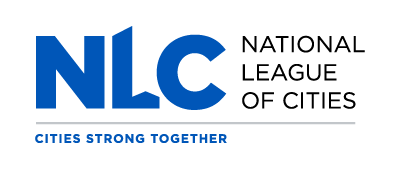Every election brings some element of change, whether in leadership or law. This turnover can leave newly elected officials and municipal staff wondering where exactly to begin, often overwhelmed by the sheer magnitude of what it takes to run a community.
Fortunately, there are a number of organizations and resources ready to help.
State municipal leagues

The first stop on every municipal officials’ resource list should be their state chapter of the National League of Cities (NLC) or state municipal league. The NLC is a long-standing advocate for city leaders of communities of every size, with an abundance of useful resources, benefits and solutions for common issues. Participation in the league also gives local leaders an advocating voice at the federal table, with leveraging to help secure and access grants for essentials such as transportation and communications infrastructure, housing, energy, natural resources and relief funding pertaining to COVID-19, to name a few. The league’s staff serve as an extension of local municipal staff to help answer questions, or do the research to find the answers you need. Each state league also provides a number of training opportunities, ranging from budgeting to conflict mitigation and resolution.
Industry-related organizations

In addition to state municipal leagues, there are a number of industry-related organizations to help professional staff navigate the complex variety of standing and evolving issues at hand. Here are three to get the ball rolling.
The American Public Works Association (APWA) assists with all aspects of public works management, with member personnel from local, county, state/province and federal agencies as well as private-sector representatives. The APWA network is comprised of 55 chapters in the United States and eight in Canada, with some larger states segmented into more localized chapters. One delegate from each of the 63 chapters forms the Council of Chapters, which serves as a collective advisor to the APWA board of directors, executive director, technical committees and staff as well as a conduit to each chapter’s ideas, needs and opinions. General resources of the organization include access to a network of other public works professionals, trade insights, training and educational opportunities.
The International City/County Management Association (ICMA) offers professional development programs, research, publications, technical assistance and training to city, town and county chief administrative officers and staff around the world. The goal is to support those as hired, directed or elected to oversee the day-to-day business operations of local government and provide them the resources to manage financial and human resources, oversee the delivery of essential community services, strategically plan for growth and development, drive improvement and operate according to the highest level of ethical standards.
The International Institute of Municipal Clerks (IIMC) is a continuing education, development, certification and networking hub for all those serving in the municipal clerk profession. With over 14,000 members worldwide, IIMC represents municipalities ranging in size from 250 to more than 10 million.
Cross-jurisdictional networking

The aforementioned organizations can be invaluable in helping new public works staff, municipal clerks, administrators and managers get their bearings. But, don’t forget all the incredible resources right in your own backyard! Engaging with regional counterparts and comparing challenges and solutions can help distill broader, more globalized advice into something most applicable to your community’s unique profile. Do some networking. Have conversations with other cities’ staff and elected officials, who may have dealt with the very issues you are struggling with. The sharing of real-life lessons learned can be some of the best help you receive.
Regional planning commissions and other quasi-governmental agencies are also of great help. Maintain strong working relationships and frequent communication with regulatory agencies, non-profits, local funding agencies and foundations, and continue to grow your network of local and regional engineering and planning consultants, contractors and vendors. These will all play key roles as your community plans for and implements strategic growth plans, comprehensive plans, park and recreational plans, housing plans, revitalization plans and other long-term capital improvements. And, many of them are more than willing to provide you with guidance on how to best achieve your goals.
A foundation of support
Whether you’re a new-comer in one of these important municipal roles or just brushing up on your knowledge base, first and foremost—thank you. Your work is critical to a smooth-running community and not always easy. Rest assured, there is a multitude of individuals and organizations ready and willing to offer support, advice and lessons learned. Count us as one of them.
